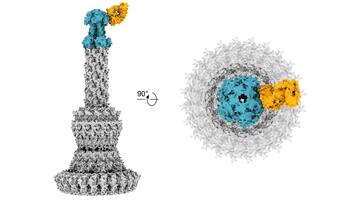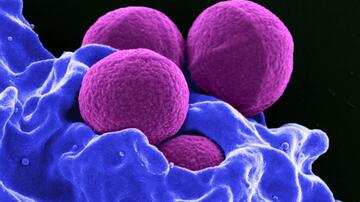Optimisation of or alternatives to antibiotic-based therapies
Many pathogens that lead to problematic infections in hospitals are brought into the hospitals by humans. DZIF researchers aim to develop intervention strategies to eliminate these bacteria in time, before a person becomes a risk patient.
Numerous pathogens that cause problematic infections within hospitals are brought into the hospital by humans. Multi-resistant strains, against which conventional antibiotics are no longer effective, are particularly critical. For example, the nose is often colonised with Staphylococcus aureus, which normally has no effect, but can have serious consequences during a surgery. Growing new knowledge about the effects of individual antibiotics on the increasing development of resistance in bacteria was used by the DZIF researchers to develop selective preventive measures for the decolonisation and eradication of resistant pathogens based on the results of microbiome research.
Preventive Approach to Fighting Bacteria
An innovative strategy to target bacteria is the development of bacteriophage cocktails and active substances isolated from bacteriophages. Bacteriophages are viruses that only infect bacteria and are very specific to a certain type of bacteria. For example, it is possible to specifically attack Staphylococcus aureus with a phage lysin. If such a lysine is applied to the nose, only staphylococci are killed, the other species in the nose are not affected.
Currently, DZIF researchers are isolating further phage candidates for use in decolonising Enterococcus faecium in the intestine. In people whose intestinal mucosa is severely impaired by chemotherapy, for example, this bacterium can grow excessively and cause life-threatening bloodstream infections. Well over 100 phages have been identified in the meantime, which are now being further characterised for possible therapeutic use.



